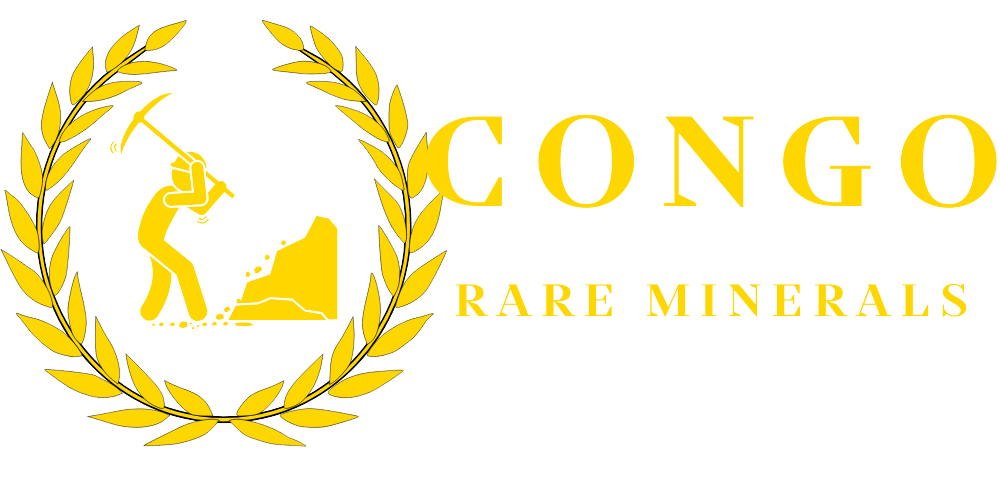Introduction: buyers now ask for proof, not promises
“Is the gold conflict-free?” used to be a polite question. Today it is a hard requirement from banks, refineries, and institutional buyers. If your supply cannot pass a compliance review, it will not pass the front desk. This guide explains the rules that matter and how Congo Rare Minerals (CRM) aligns with them so you can buy gold with confidence.
The rules that set the standard
Dodd-Frank Section 1502 (U.S.)
U.S. law pushes companies to check and disclose whether gold and other minerals in their supply chains finance conflict. Public filers run due diligence and publish results. Even if you are not a U.S. issuer, your counterparties may require equivalent proof.
EU Conflict Minerals Regulation (EU)
Since 2021, Regulation (EU) 2017/821 requires EU importers of gold from conflict-affected or high-risk areas to implement due diligence that matches international best practice. Expect written policies, risk assessments, mitigation steps, and the ability to show evidence.
OECD Due Diligence Guidance
This is the global playbook. It sets out a 5-step process:
- build strong company systems
- assess risk in the supply chain
- respond and mitigate
- audit due diligence practices
- report publicly
Most refineries and trading hubs now reference this guidance directly.
LBMA Responsible Gold Guidance (RGG)
LBMA-accredited refiners must apply the RGG, which mirrors the OECD steps, screens counterparties, and requires assurance reporting. If your metal is destined for an LBMA-listed refiner, you will be asked to demonstrate that your documents and route hold up against RGG checks.
What “conflict-free” means in practice
To pass a desk review and an audit, you need more than a certificate. You need a file.
Your file should include:
- Chain-of-custody evidence from site to refinery
- Mine-of-origin details and production references
- Export licenses and permits, invoices, packing lists, airway bills
- Independent assay at delivery and reconciliation to shipped weights
- Risk assessment and screening for sanctions, illicit trade, and labor issues
- Contract terms that allow audit rights and set “assay-on-arrival” settlement
Do this, and you reduce seizure risk, delays, and price haircuts. Skip it, and many buyers will not engage.
How Congo Rare Minerals aligns to the standard
Congo Rare Minerals (CRM) is built around documentation and delivery, not just metal.
Our approach
- Source Advantage: We sell direct from licensed DRC operations, cutting intermediaries that blur provenance.
- OECD-style due diligence: Written policies, risk mapping, and mitigation embedded in our workflows.
- LBMA-ready paperwork: Full chain-of-custody, export authorizations, insurance, and shipment files that refineries can review.
- Assay-based settlement: Independent refinery assay on arrival at mutually approved refineries in Dubai, Switzerland, Europe, China, or the USA.
- Compliant routing: Shipments move via Uganda for export processing and transparent customs clearance.
- Community impact: Our trade supports jobs, clinics, and schools in the regions where we operate, aligning ethical sourcing with real local benefits.
Highlighted advantages
- Source direct from the DRC
- Fully verified provenance
- Assay-on-arrival settlement
- Contracts that pass institutional due diligence
Why compliance unlocks markets
- Banking and insurance: Clean provenance opens accounts, lowers friction, and improves settlement speed.
- Refinery acceptance: LBMA-aligned files mean faster intake and fewer queries.
- Resale liquidity: Documented bars sell faster and at better prices because buyers can complete audits.
- Reputation and partnerships: Compliance protects brand value and enables long-term offtake deals.
Africa’s opportunity, done the right way
The DRC is widely cited with roughly $24 trillion in untapped mineral wealth and estimates suggest about 90% remains unexploited. That potential only matters if supply is legal, documented, and ethical. CRM’s model turns that potential into institutional-grade bullion that meets the standards buyers now expect.
Implementation checklist for buyers and exporters
Policy & contracts
- Adopt an OECD-aligned policy and flow-down clauses to suppliers
- Include audit rights, KYC/KYB, and assay-on-arrival in the SPA
Documentation
- Maintain a single deal folder: licenses, invoices, packing list, airway bill, CoC log, insurance, and assay certificates
- Keep screening memos for sanctions and labor risk
Operational controls
- Pre-book the receiving refinery and agree on testing protocol
- Fix the HS code and customs declarations with your broker
- Reconcile shipped weights to assay results and settle per contract
FAQ
Is a “certificate” alone enough to prove conflict-free gold?
No. Auditors expect full documentation and a risk-based due-diligence file, not a single document.
Do I need LBMA certification to buy or sell?
You need to meet the LBMA Responsible Gold Guidance standard when delivering to LBMA-listed refiners or trading with counterparties that rely on LBMA assurance. Even outside LBMA circles, most serious buyers ask for the same level of proof.
How does CRM help me pass a compliance review?
We provide a complete document pack, including chain-of-custody records and delivery-assay results, and we structure contracts for assay-on-arrival at agreed refineries.
Conclusion & CTA
Ethical sourcing is no longer optional. It is the ticket to market access, pricing power, and long-term partnerships. If you want conflict-free gold from Africa that stands up to legal and refinery checks, start at the source.
Stop guessing about provenance. Buy documented, deliverable metal.
Contact Congo Rare Minerals to plan your allocation and route delivery to your preferred refinery under LBMA-aligned, OECD-style terms.
